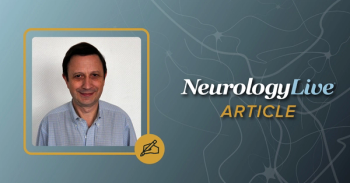
COVID-19’s Effect on the Brain

As many as 1 in 3 infected with COVID-19 have longer-term neurological or mental health symptoms.
As more people receive the COVID-19 vaccine, a sense of normalcy is emerging for the general population. But others are burdened by neurological complications after having the virus, and they’re looking for help.
Kevin M. Kelly, MD, PhD, an Allegheny Health Network (AHN) neurologist, is answering that call with a research study to determine which parts of the brain are causing these problems. Even people who had the virus and only experienced mild symptoms tell doctors they’re dealing with issues as frustrating as having “brain fog” or as alarming as losing their memory.
As many as 1 in 3 infected with COVID-19 have longer-term neurological or mental health symptoms.1
“We want to validate what these patients are feeling and living with by assessing which parts of their brains are affected and then making a plan to help them,” Kelly said. “We don’t have enough information yet, so we can’t tell patients when they’ll get better. This is a way to get to the source of the problem.”
Experts speculate that these neurological issues come about after COVID-19 triggers an inflammatory response in the brain.
A recent study found that as many as 1 in 3 people infected with COVID-19 have longer-term neurological or mental health symptoms. It involved the electronic health records of more than 236,000 COVID-19 patients. Results showed that 34% of COVID-19 survivors received a diagnosis for a neurological or psychological condition within six months of their infection.1
Kelly’s study involves using the Neurolign Dx 100™, a high-tech goggle that assesses brain function using eye-tracking technology. He said the data will provide information about which pathways of each patient’s brain has been compromised.
“The eyes are the window to the soul, as well as the brain,” Kelly said. “Using 22 different metrics, we can get some answers.”
Taking a Closer Look
Patients in the study put the Neurolign goggles over their eyes. A computerized voice asks them to follow an illuminated dot as it moves and jumps across the screen. For 20 minutes, the device delivers a comprehensive set of oculomotor, vestibular, and reaction time (OVRT) tests while capturing eye and motor reflexes and responses.
Eye movement irregularities are captured as images, analyzed against algorithms, and consolidated into reports that may provide valuable insight into a patient’s neurological health. Kelly used a similar device in past studies to successfully gather information about concussions in high school athletes.2
The study’s enrolling patients 18 to 45 who had COVID-19 and experienced no, mild, or severe symptoms and now have neurological complications. Patients’ symptoms can vary — from headaches, dizziness, confusion, memory loss, and reduced alertness to ataxia, stroke, and seizures.
Kelly discussed a 39-year-old patient who recovered from COVID-19 late last year and, months later, says, “I just don’t feel right.” He’s having memory lapses, struggling with multitasking, and oftentimes has to deliberately think of what he needs to do next at work.
“It can be scary and frustrating for these patients,” Kelly said. “They may have employers who don’t believe them, family and friends who think they’re being lazy, and physicians who may doubt the patient.”
Helping Patients Cope and Improve
“The goal is to provide patients with the help they need,” Kelly said. Results of the study will show if a patient would benefit from services, such as physical therapy, nutrition counseling, a sleep specialist, and cognitive behavior therapy.
AHN recently opened a specialized clinic to address all of these unique health needs of patients recovering from COVID-19 and experiencing its longer-term effects. The myriad of issues that doctors are seeing patients deal with range from neurological and pulmonary, to heart and vascular problems, to chronic fatigue, headaches, and post-traumatic stress disorder.
The AHN Post-COVID-19 Recovery Clinic is led by AHN’s Division of Pulmonary and Critical Care and is based at AHN Wexford Health + Wellness Pavilion. Participating physicians, like Kelly, are located at hospitals throughout the network, and they offer both telemedicine and in-person appointments.
“We want to put a story together as to what is causing each patient’s symptoms, monitor them for improvement, and provide multifaceted care to those who don’t progress,” Kelly said.
For more information about the project, contact Dr. Kelly at 412-359-8850.
REFERENCES
1.Taquet M, Geddes JR, Husain M, Lucian S, Harrison PJ. 6-month neurological and psychiatric outcomes in 236 379 survivors of COVID-19: a retrospective cohort study using electronic health records. Lancet Psych. 2021;8(5):416-427. doi:10.1016/S2215-0366(21)00084-5
2. Kelly KM, Kiderman A, Akhavan S, et al. Oculomotor, Vestibular, and Reaction Time Effects of Sports-Related Concussion: Video-Oculography in Assessing Sports-Related Concussion. J Head Trauma Rehabil. 2019;34(3):176-188. doi:10.1097/HTR.0000000000000437
Neurolign Dx 100 is a trademark of Neurolign Technologies Inc., and is used with permission.
Newsletter
Keep your finger on the pulse of neurology—subscribe to NeurologyLive for expert interviews, new data, and breakthrough treatment updates.










